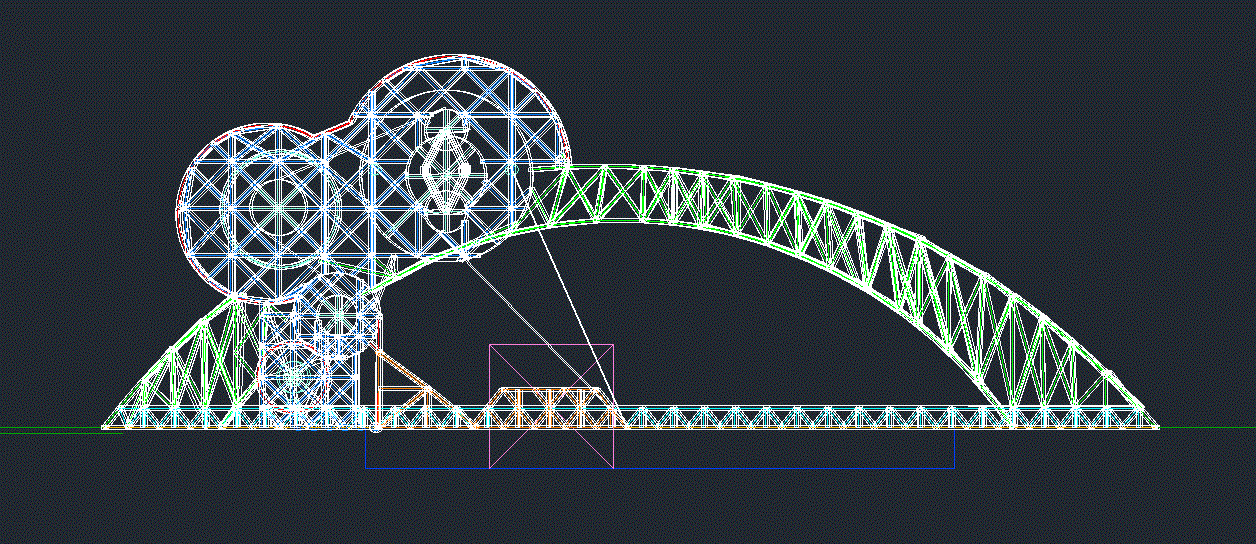|
|

|

|

|
|
Conceptual Diagram
|
YOKOGAWA
BRIDGE - CABLE STAY DESIGN
|
BAYONNE
BRIDGE - ARCH DESIGN
|
BRAGA BRIDGE
- TRUSS DESIGN
|
Methodology
|
|
Images of Movement
|
|
|
|
|

|
The roadbed can split in to 2;
30:70. The smaller road section can then swing in either direction parallel
to the bank of the river and let the traffic pass.
|
The same theory can be applied
in this case with the exception being that the smaller part of the bridge can
open up like a drawbridge.
|
The challenge in this scenario
is incorporating both the rotational movement and the uplifting the section
of the bridge.
|
|

|
The rotational movement can help
the smaller road draw back but incorporating the jack's movement seems a bit
challenging in this case.
|
The smaller section of the road draws
back with the rotational movement and the jack can lift up the section of the
bridge.
|
The placement of the jack is an
issue in this case. Even after the jack is placed at one end to lift up a
section of the road, I still need to figure out the truss movement.
|
|

|
A combination of gears can be
used to lift the bridge up but the ideal placement/location appears
difficult. The horizontal movement of the road needs to be figured out as
well.
|
Placement of gears is not an issue,
they can lift up the section of the bridge easily, and then second mechanism
has to introduced to slide the roadbed.
|
The road can slide horizontally
backwards on to the land and then vertical lift mechanism needs to be
introduced to lift the truss section up.
|
|
|
|
|
|
Design Process
I
decided to select the arch-bridge prototype and incorporate the jack movement
into the design. In order for me to incorporate the jack function, the design
of the bridge had to be substantially altered. It was critical that my approach
for the bridge re-design was altered significantly to accommodate the jack
function while staying within the defined parameters of the project.


Once the jack function was incorporated to draw up the
bridge; I still needed to figure out how to manuver the bridge roadway back
while sliding the draw bridge up. To overcome this challenge, I than introduced
the rotational movement of gears and cork screws to slide the roadway back
while the jack is drawing up the bridge.


Below is the final design that shows the integration of the
required function of the jacks lifting and rotational movement and
transformation which occurred in due process. One of the requirements of the
project is that the final design has to depict the transformation of the
original.

After
critique, the design had to be revised one more time to show how the function
transformed the shape of the design and how eventually everything came together
to work flawlessly!
2D/3D Images










The
animation below shows the enitre process, from start to finish.

























